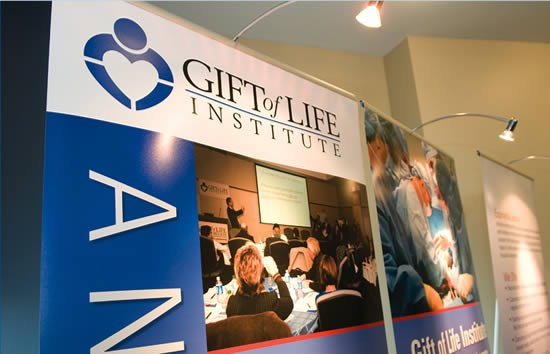Engaging the Physician
Engaging the physician is an invaluable component of the OPO-hospital partnership and an important strategy for cultivating and strengthening physician relationships.
As with most things related to relationship building, listening is key. When attempting to engage a physician, you’ll need to listen carefully to his or her language and learn to convey your donation information with that language in mind. In other words, speak the physician’s language.
Taking it to the next level, you’ll also need to discern the implications behind the physician’s language. What priorities does the physician’s language convey? It’s a fairly safe bet that those priorities include patient outcomes, family care, and process efficiencies.
It’s also important to consider any barriers to language that may result from your personal communication habits or OPO jargon. Specifically, what do you say and what does your hospital partner hear?
For example, you’ve probably used the term “early referral” when discussing donation. However, the physician could easily hear this as “too early.” Additionally, the physician could begin to use this terminology with colleagues who are less informed about donation. Instead, use the term “timely referral.”
Understand Their Perspective
It’s imperative when engaging physicians to put yourself in their shoes. Consider the following OPO terms and what they mean to us.
- Organ referral
- On-site; early linkage
- Optimize organ function
- Brain death pronouncement
- Collaborative request
- Compliance
Now, consider what each means to the physician. His or her perspective of terms may carry very different, and often sensitive, meanings.
OPO Term What it May Mean to Physician
| Organ referral | Failure and loss |
| On-site; early linkage | Family betrayal |
| Optimize organ function | Caring for a patient with no hope of recovery |
| Brain death pronouncement | Time, resources; futile care |
| Collaborative request | Loss of control |
| Compliance | Dictated practice |
Use your knowledge of the physician’s language and potential perspectives on donation terminology to understand where the physician is coming from. Then use the understanding of those perspectives to align goals or to be on the same page.
Remember, the most likely common ground that exists between you and the physician is the patient. Expand that probable common ground to include the patient’s family and efficiencies and you have a strong foundation for conversation. Donation best practice and policy implementation should center around the benefits of your partnership to this common ground.
Be Transparent
As an OPO professional, it’s your role to serve both the potential donor patient and the potential transplant recipient. This role as dual advocate is an undeniably important one and bears acknowledgement. Transparency in that role is necessary to achieve credibility as a partner and to ensure the best hospital development outcomes. From that foundation—and using language focused on common ground—it’s appropriate to discuss areas that may otherwise be sensitive ones for physicians.
One such area—critical to both maximizing and optimizing donation opportunities—is end-of-life clinical management. How a patient is managed clinically at end-of-life has profound implications on whether—and to what extent—donation is possible. While this area is exhaustive unto itself, it’s a great example of one that can benefit significantly from transparency in your role as dual advocate. The physician may perceive the OPO as “only out to get the organs.” He or she may feel you are asking physicians to perform inappropriate clinical interventions, draw resources away from other patients, or to go against the wishes of a patient or family.
Even though you may feel you are pushing very hard when meeting with a physician, it’s okay that you’re advocating for both potential donors and recipients. These people count on you to do so. But it is also okay that the physician has discomfort or differing opinions. His or her concerns are as real to the physician as your motivation for addressing the topic is to you. Neither should be disregarded.
Examine your use of language, try to speak the physician’s language, and acknowledge your different perspectives. Then use your common ground—usually the patient—to openly discuss your hospital development initiatives with transparency. In the end, this will often equate to full engagement of the physician as a partner.
Elizabeth Spencer has been working in the OPO community since 2002. She was with Washington Regional Transplant Community (WRTC) for nine years, serving as both Director of Hospital Services & Professional Education, and in the clinical division as a Senior Clinical Recovery Coordinator. As Director of Hospital Services & Professional Education, Elizabeth was responsible for oversight of partnerships with area hospitals regarding the implementation of donation best practices, donation educational programs for various hospital staff, hospital data analysis and reporting, hospital donation strategic planning, and hospital policies related to organ and tissue donation.

